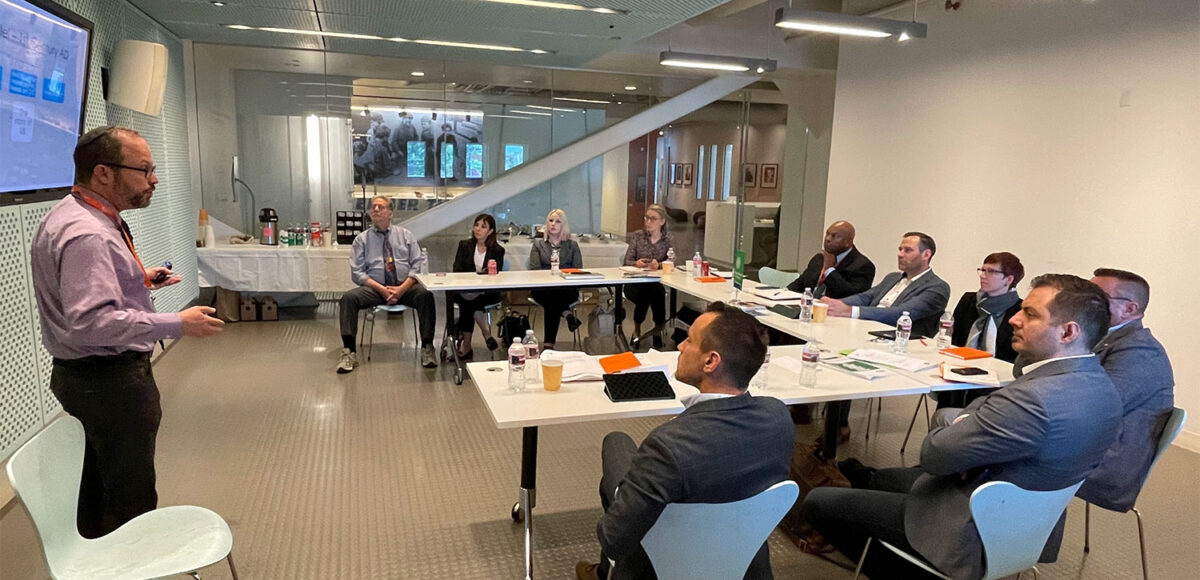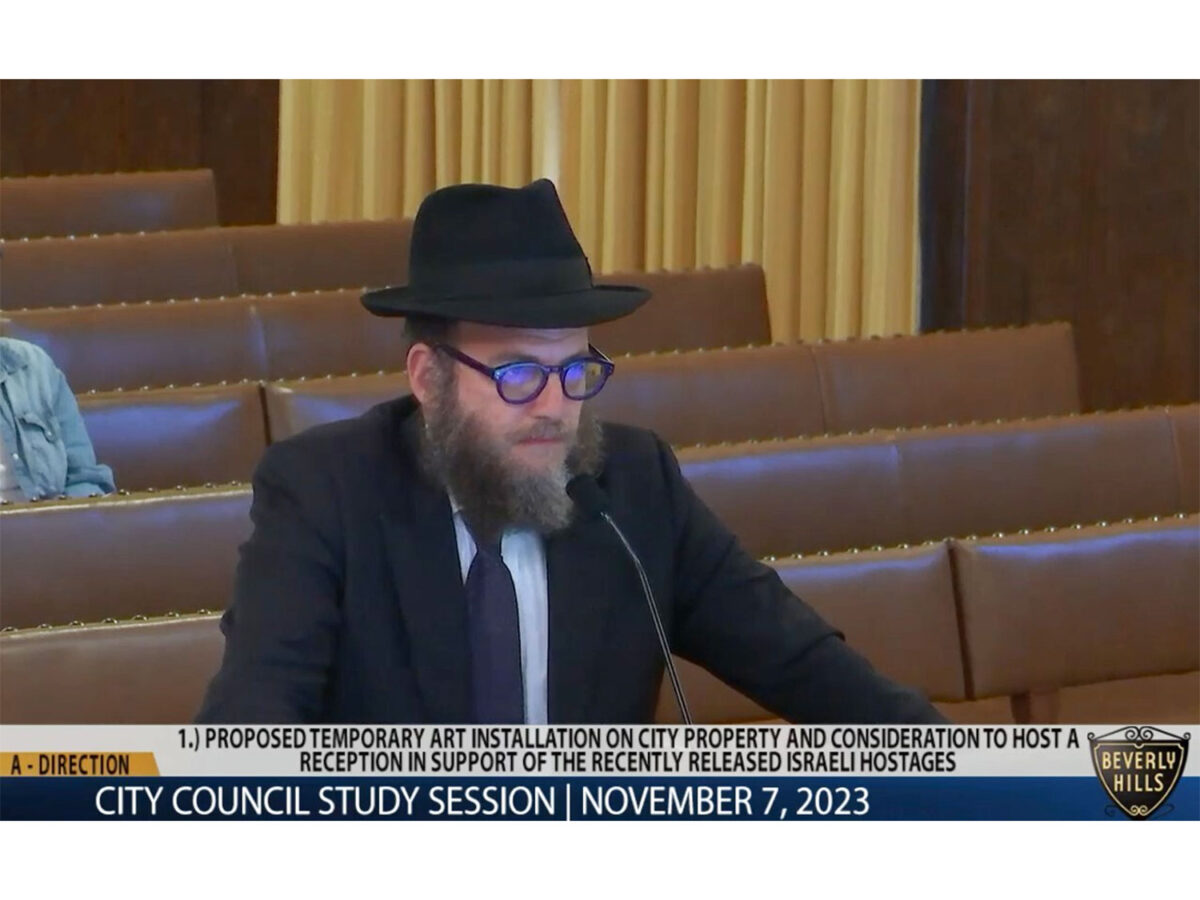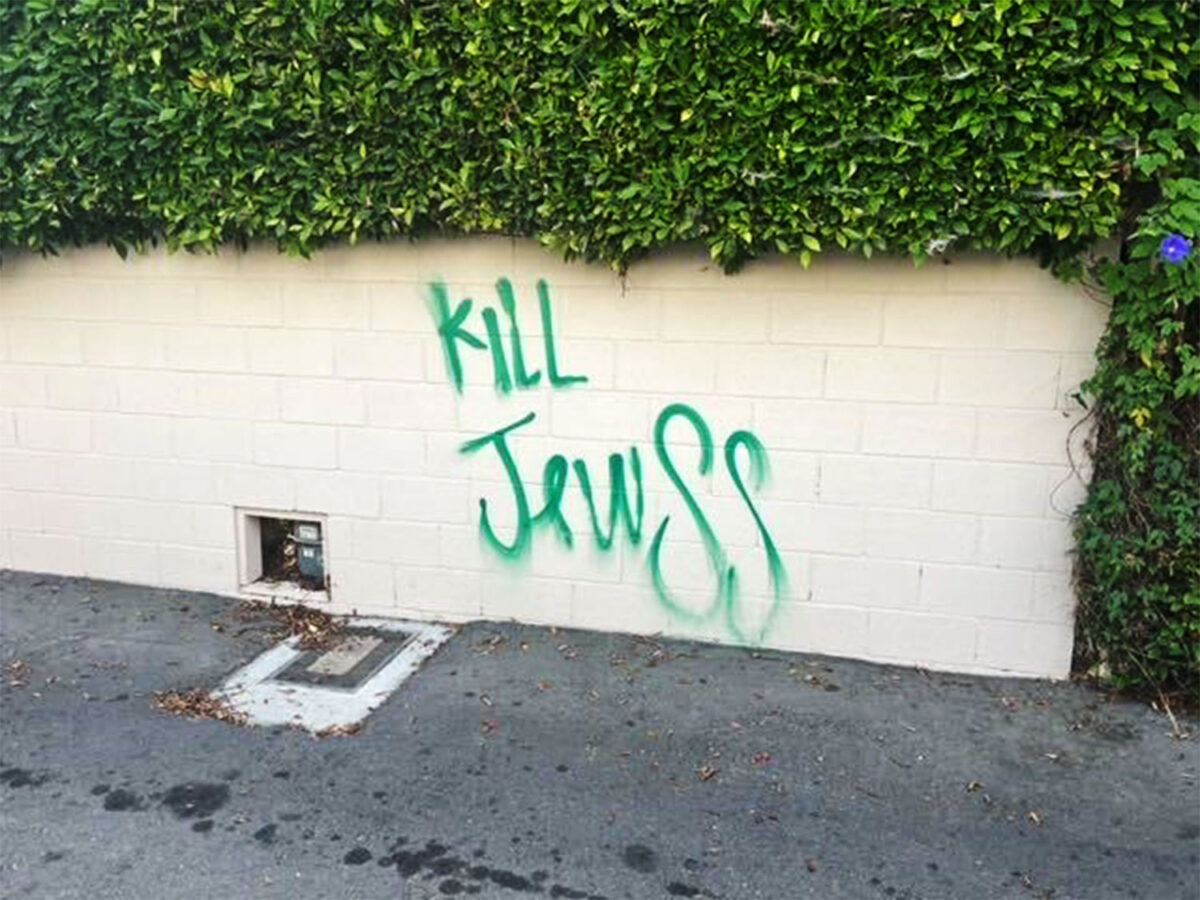Alarmed by spiking rates of antisemitism, a delegation of German police officers recently visited the Museum of Tolerance to learn cutting-edge techniques to combat the most ancient form of hate.
The delegation spent several days at the museum, which sits on the border of Beverly Hills, where they undertook training on topics like tracking online hate and studied the history of antisemitism through the museum’s exhibitions.
The Federal Chairman of the German Police Union Jochen Kopelke organized the trip in response to his alarm about the rise of anti-Jewish hate crimes seen on the streets of Germany.
“There is a lot of antisemitic crime because of the protests and the ongoing war in Israel, and we had this thought of we’re a police and have history in the Shoah, or Holocaust, what should we do to protect and serve our Jewish communities?” Kopelke, who represents over 205,000 officers, told the Courier.
And where better to find expertise in combating antisemitism than in Los Angeles, home to over half a million Jews and multiple organizations dedicated to combating hate?
Kopelke reached out to the “Tools for Tolerance” law enforcement training program at the Museum of Tolerance. This program is designed by the Simon Wiesenthal Center and has provided training to dozens of law enforcement agencies on subjects such as cultural diversity, hate crimes, racial profiling and ethical leadership.
“We have never left Europe and gone out in the world to see where is the best idea or the best practices to train police officers, so we’re very glad to meet up with the Museum of Tolerance and get a huge toolbox for our law enforcement colleagues,” said Kopelke. “That’s very new for us.”
Charles Evans, associate director of the “Tools for Tolerance” program, was thrilled to host the delegation, which was the first foreign police group the museum has trained.
“My experience with them was really extraordinary, because oftentimes we don’t have the opportunity to interact with our colleagues across the world,” said Evans. “I think that many of the challenges we’re having are similar, so I think they felt a great deal of benefit from this trip.”

Photo courtesy the Museum of Tolerance
A core component of the training officers received was in using internet software to identify and track down leaders of hate groups, composers of hate propaganda and organizers of hateful protests and attacks. They also discussed how to read the different languages of hate, be it literal foreign languages, hand signals or graffiti messages, said Evans.
“We met up with specialists to learn how to deal with open-source intelligence to figure out how Nazi groups or terrorist groups act on social media platforms,” said Kopelke. “This is not a new concept for us as officers, but some of the software was quite impressive and I look forward to sharing the techniques with my colleagues over in Germany.”
Evans, who is a retired LAPD officer, also arranged a visit to the LAPD Historical Museum and the opportunity for the delegation to meet with leaders of the Los Angeles Police Protective League and the Los Angeles Police Command Officers Association.
“They were actually collaborating with the top 1% of the decision makers in LAPD,” said Evans. “We had a rich dialogue, and a lot of creative and innovative ideas were shared.”
Before flying back to Germany, the officers attended a Shabbat service and spoke with Jewish Angelenos about their experiences of antisemitism. The members of the synagogue were so touched by the officers’ interest in visiting their community that after the rabbi introduced the delegation everyone rose and gave a standing applause.







